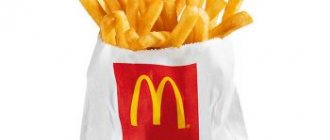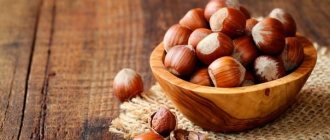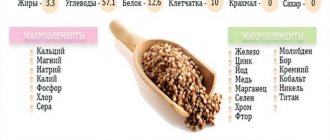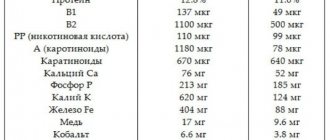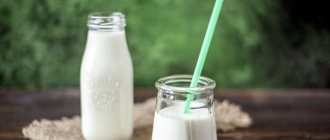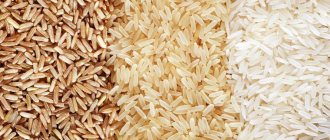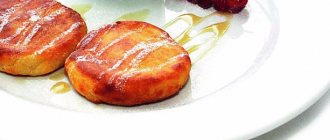Product BJU
If the delicacy was prepared without additives, it has virtually no taste, which affects its popularity. It is practically not bought in public institutions - cinemas, experimental theatres, amusement parks. The average calorie content of such a delicacy is 367 kcal, which is quite a lot and can cause problems with your figure. The composition of such corn includes fats (13.5), proteins (7.3) and carbohydrates (62.7).
However, when additives are added, the calorie content of salted popcorn or its sweet counterpart increases significantly. Let's figure out what popular types of popcorn exist and what their calorie content is.
Composition and nutritional value
Popcorn consists mainly of carbohydrates, including starch, fiber and sugar, as well as proteins and fats, a significant part of which are unsaturated fatty acids. In addition to the main nutrients, popcorn contains many different vitamins, minerals and trace elements. The product is rich in potassium, magnesium, iron, calcium, polyphenolic antioxidants and B vitamins.
The ratio of protein, fat and carbohydrates is 9.5%, 16.1% and 74.3% respectively.
While the optimal ratio is considered to be 16-17-67%. Therefore, it is better to combine puffed corn with proteins, and added sugar should be eliminated. The pure product has a calorie content of 375 kcal per 100 g. Once you add sugar, salt, butter and other flavorings to it, the calorie content of popcorn will increase significantly.
The largest amount of popcorn is eaten in movie theaters. A portion of popcorn sometimes costs more than a ticket to a movie show. The volumes of buckets and glasses differ in different places. On average, the smallest 750 ml glass contains approximately 50 g of popcorn, the largest glass takes up 1.5 liters and holds about 100 g of popcorn.
The average bucket of product weighs 150 g, and the largest, five or six-liter, bucket holds 200-250 g of treats. As a result, in one session the viewer can unnoticed consume from 200 to 800 kcal, and this is only if the popcorn is without additives, but in fact in the movies this dessert is often sweet, which significantly increases its calorie content.
Accordingly, in one movie session it is realistic to consume the same amount of kilocalories that constitutes a full three meals a day diet - about 1500-2000 kcal.
Calorie content of salty and sweet treats
Puffed corn with added salt contains 407 kcal. In general, such popcorn is practically no different from other types, however, after eating it, a person develops a thirst, which is quenched with carbonated water in a cinema, circus or other places.
At home, such corn is often consumed together with beer, which is why its calorie content increases several times. The accumulation of salt in the body leads to fluid retention and hinders the breakdown of fats. The best option when consuming such popcorn is to purchase drinks such as herbal or green tea, or mineral water.
Many people have a question about the calorie content of sweet popcorn. It is most popular among children. The number of calories in it depends on the amount of added syrup and the presence of various fillers. In general, the calorie content of such corn can vary from 400 to 700 kcal.
It is best for your figure to consume a product prepared in a microwave oven. This sweet popcorn has minimal calorie content when compared to other types. This product has a low cost, and for this reason, manufacturers rarely add syrups to it. To enhance the taste, powdered sugar is used, which is sprayed in a small amount into the product.
What is the keto diet?
The ketogenic diet recommends dramatically cutting down on carbohydrates and replacing them with fat.
This leads to a metabolic state known as ketosis, during which your body uses fat byproducts called ketones (,) for energy in the absence of carbohydrates.
The ketogenic diet is commonly used to help children with epilepsy cope with seizures.
Its use is also associated with health benefits such as weight loss, as well as improved insulin sensitivity, cholesterol levels, and better blood sugar control in people with type 2 diabetes (, , , ).
To achieve ketosis, you generally need to eat less than 50 grams of carbohydrates per day, although some people may need to reduce their carbohydrate intake even further ().
As a result, low-carb foods such as eggs, meat, fatty fish, avocados, olive oil, nuts and seeds, and non-starchy vegetables such as cauliflower, broccoli and bell peppers form the basis of the keto diet.
According to most keto experts, the carb limit refers to net carbs, which are calculated by subtracting the grams of fiber from the total carbohydrates in a serving of food ().
By this logic, whole grains and other fiber-rich carbohydrates contain fewer net carbs than foods without as much fiber, such as refined grains.
Conclusion:
The ketogenic diet involves decreasing your carbohydrate intake and increasing your fat intake so that your body burns fat for energy. This was associated with weight loss, improved blood sugar control, and a reduction in the frequency of epileptic seizures.
Energy value of cheese corn
This type is the most high-calorie. This delicacy contains a cheese mixture, and 100 grams of it contain more than 500 kcal. It is very difficult to buy such corn, and most often you can buy a product that does not contain a cheese mixture, but various flavors, chemical additives and flavor enhancers. For this reason, before purchasing, it is better to first read its composition. In general, cheese popcorn has a high calorie content when compared to other types, but this does not affect its popularity at all.
Calorie content of caramel popcorn per 100 grams
The calorie content of caramel popcorn per 100 grams is 401.5 kcal. 100 g of sweets contain 5.2 g of protein, 8.8 g of fat, 76 g of carbohydrates.
To make caramel popcorn at home you need:
- pour sunflower oil into the pan so that it completely covers the bottom;
- add corn kernels to the oil;
Interesting: Calorie content of black bread crackers
- heat the pan. When heated, you will hear the corn kernels popping. You need to wait until all the clapping stops;
- to prepare caramel, butter is mixed with sugar and cooked until it turns brownish;
- Sweet syrup and cereal are thoroughly mixed. Popcorn is ready!
Types of treats
Today there are many types of this delicacy. On retail shelves you can see popcorn flavored with bacon, cheese, paprika or caramel. This product can be divided into the following groups:
- Salted popcorn. It is puffed corn with added salt or salty seasonings.
- Caramel popcorn. This puffed corn is poured with sugar syrup, and after cooling it turns into a caramel crust on the surface of the flakes.
- Corn with different flavors. This popcorn contains a high concentration of flavor enhancers, additives and dyes.
Is popcorn good for the body?
Popcorn can be healthy if producers or individuals prepare it in the best possible way.
Popcorn is a whole grain that helps improve heart and gastrointestinal health. It is beneficial due to the important nutrients it contains such as fiber, protein, vitamins and minerals. It also contains low amounts of fat and sugar, and does not contain cholesterol.
Puffed corn that is cooked without oil provides the best health benefits. You can make popcorn by heating corn kernels in a popcorn popper or on the stove.
Many people are more accustomed to popcorn sold in movie theaters and stores, which contains unhealthy fats, additives and flavors.
Microwave popcorn may also contain additives and the bags may contain contaminants.
Pre-cooked popcorn often contains high amounts of salt or sodium. Eating too much sodium can cause high blood pressure and other complications. Some brands also contain a lot of sugar.
Because of this, although popcorn has many health benefits, you should choose only those without harmful additives and include it as part of a healthy diet. However, eating sweetened or salted popcorn from time to time usually does not cause any harm.
Below we will discuss the nutritional benefits that popcorn can provide.
Nutrient content
Some nutritionists are of the opinion that this product is beneficial for the human body. However, the use of various additives in the form of dyes, fillers and flavor enhancers in its preparation makes the delicacy harmful to humans, since the stomach becomes clogged, as a result of which metabolism begins to occur much more slowly, which, in turn, leads to excess weight.
The most useful product is considered to be one that does not have additives. It contains carbohydrates, the digestion of which over a long period of time prevents the stomach from feeling hungry.
And also this puffed corn contains a significant amount of fiber, which helps normalize the functioning of the stomach.
Eating such a delicacy allows you to compensate for the deficiency of vitamin B, which has a positive effect on the functioning of a person’s heart, as well as his nervous and digestive system, due to the presence of potassium in it, which also allows you to get rid of edema, as excess fluid is removed.
Is it possible to lose weight eating popcorn?
You will be surprised, but some nutritionists even recommend popcorn as a snack, because it will save you from the desire to snack on baked goods, cakes or sandwiches. In addition, if you are among young people, then instead of chips and salty snacks, popcorn is a much more suitable option.
Corn itself is a healthy low-calorie product that has a good effect on the intestines. And it is quite natural that all the beneficial properties of corn are preserved in popcorn. Excess weight does not appear from the popcorn itself, but from the method of its preparation and the presence of additives in it.
The most popular types of popcorn are salted, caramel, cheese, and despite the fact that sweet popcorn has the lowest calorie content, it is also the most harmful. It very much clogs the stomach and interferes with normal metabolism; if overeated, it can cause irreparable harm to the adult body, greatly increasing blood sugar, not to mention the delicate and weak children.
But if we talk about natural popcorn, then it contains substances that have a good effect on the functioning of the liver and heart, and also do not increase weight, but on the contrary, help to remove it. We are talking about a pure product, without additives, fats, oils and other products. It is this substance that is approved for use in diets to improve the functioning of the gastrointestinal tract and diversify the diet, which is usually very meager on diets.
Popcorn is actively used in vegetable diets (cabbage, carrots, turnips) and diets with nuts and raisins. There is even a popcorn diet, it is based on a regular low-calorie diet of vegetables, and you can eat as much popcorn as you want.
With popcorn you can make a low-calorie soup, cook it with mushrooms, with sauces, add it to salads, for children you can make a funny cake from popcorn and marmalade that will not add a lot of calories. If you have already learned how to count calories for weight loss, then you can easily add popcorn to your diet. Since this product exists in our lives, let us treat it with respect and give it its due - let it be, but in a natural and beneficial form for the body.
Can People Use Popcorn to Lose Weight?
Popcorn, without added fat or other additives, is low in calories, fat and sugar, and high in fiber. This means that when you eat popcorn as part of a balanced diet, it can help you lose weight.
According to the CDC, the best way for most people to lose weight is to make healthy lifestyle changes ().
These include healthy eating habits, regular physical activity, and balancing the number of calories you consume with those your body burns.
Fruits, vegetables and whole grains, including popcorn, are an essential part of a healthy diet. Foods low in saturated fat, trans fat, cholesterol and added sugars, again including popcorn, are also good choices.
The CDC recommends that people limit their salt intake. Popcorn can contain a lot of salt, so it's wise to check the ingredients label on the package to find out how much salt or sodium each item contains.
Healthy eating should be about balance, not restricting the foods you eat. This means that a reasonable serving of salted or sweetened popcorn as an occasional treat won't do any harm.
What types of popcorn are the healthiest?
The beneficial properties of popcorn vary depending on the type ():
Puffed corn, cooked in a popcorn maker without the use of fat, salt and sugar, is the healthiest type of popcorn, which contains:
- 0.21 g sugar
- 1.09 g fat
A serving of butter-popped, no-salt, no-sugar popcorn contains ():
- 0.13 g sugar
- 6.74 g fat
A serving of caramel-coated popcorn contains ():
- 10.89 g sugar
- 1.87 g fat
The amount of fat and sugar in caramel popcorn can vary significantly depending on the brand. Microwave popcorn also varies in type and brand. You can check the label for information about the ingredients of a particular product to help you make the right choice.

